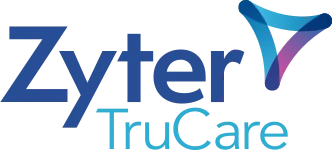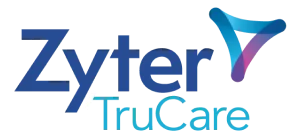- Kimesha Malone, RN, Clinical Business Success Consultant
Health plans strive for seamless coordination between Care Management (CM) and Utilization Management (UM) to ensure their members receive timely, effective care. Unfortunately, these functions often are not well coordinated, resulting in fragmented communication, reduced member engagement, and suboptimal outcomes.
To address this, health plans need a technology-driven, member-centric process that unifies all CM and UM activity for a single member to ensure stronger provider collaboration, improve medical adherence, and support better health outcomes.
Two Teams, One Goal: The Roles of CM and UM
Successful CM should engage members directly. CM nurses and other clinical team members perform comprehensive member assessments, develop personalized care plans, coach members on managing appointments, medical conditions, and medications, and connect them with vital community resources. Another aspect of successful CM is omnichannel communications—CM can reach members telephonically, virtually, and in-person, helping them stay informed, engaged, and in control of their healthcare journey.
As opposed to CM, UM typically works behind the scenes. According to the American Nurses Association, UM team members ensure patients receive necessary care while effectively managing resources and costs. UM nurses and medical advisors review and authorize services based on clinical necessity, timely delivery, and cost-efficiency, collaborating closely with providers and internal teams to maintain adherence to clinical standards.
Despite shared goals, separate CM and UM processes often create operational disconnects—causing member abrasion and fragmented care delivery that negatively impact both providers and members.
Why Integrated Care Matters
My career in Medical Management—including roles in clinical systems integration, maternal case management, member journey, and high-risk antepartum care—has highlighted the real-world impacts of disconnected CM and UM operations. Providers frequently lack timely information because critical updates and authorizations may be stored separately. Delays in authorizations can stall CM outreach efforts, leading to unclear next steps for providers and members alike. Consequences of this fragmented approach could be member dissatisfaction, lowered trust, reduced adherence to medical recommendations, and most significantly, suboptimal care outcomes. This reinforces the importance of an integrated approach to care.
When systems are aligned, care teams can act quickly and collaboratively. For example, consider a patient like Mary, dealing with pregnancy-induced hypertension and expecting twins. After being referred by her provider, a CM nurse developed a personalized care plan and shared it promptly. Later, Mary’s contact information changed, causing CM outreach to falter. During a routine UM review, a nurse identified Mary’s hospitalization due to elevated blood pressure and quickly updated the record. Without integrated CM and UM systems, these vital updates might be delayed or overlooked. In contrast, an integrated environment immediately alerts the CM nurse, who huddles with the UM nurse, Medical Director, and Social Worker, reconnects promptly with Mary, schedules essential follow-ups, secures authorizations for a home blood pressure monitor, and keeps the provider updated. Mary ultimately delivers healthy twins at 37 weeks, avoids complications, and confidently manages her care.
Disconnected systems not only lead to dissatisfied members but also increase the risk of inefficient work processes, avoidable hospitalizations, and adverse outcomes.
Tools That Bridge the Gap
Zyter|TruCare addresses these challenges by offering healthcare organizations tools designed explicitly to unify CM, UM, and provider collaboration around the individual member. Leveraging insights from clinical system leadership and digital transformation experience, Zyter|TruCare ensures:
- Unified Member Profiles: Centralized access to care plans, authorization statuses, provider notes, and assessments, providing timely, consistent information.
- Embedded Communication: In-workflow messaging facilitates real-time coordination without external emails or manual follow-ups.
- Automated Workflow Triggers: Instant notifications prompted by clinical events or data changes, streamlining interventions without delays.
- Predictive Analytics: Proactively identifies risks and social determinants, enabling early, targeted interventions that enhance adherence and improve outcomes.
- Care Team Collaboration: Provides the platform to create open communication and case documentation that engages ALL clinical staff apart of the member’s care team.
- Mobile Offline Access: Allows care managers to access clinical information on the go, enabling them to effectively meet members wherever they are, without worrying about internet connectivity.
The Future Is Integrated
Achieving effective collaboration between CM, UM, and providers demands solutions tailored specifically to the needs of health plans managing complex populations. Zyter|TruCare’s integrated platform enhances provider alignment, improves operational efficiency, reduces administrative burden, and significantly boosts medical adherence. With this unified approach, providers and care teams can better support member health, ultimately driving superior clinical outcomes.
To discover how Zyter|TruCare can empower your organization with integrated, member-focused care solutions, contact us today.








